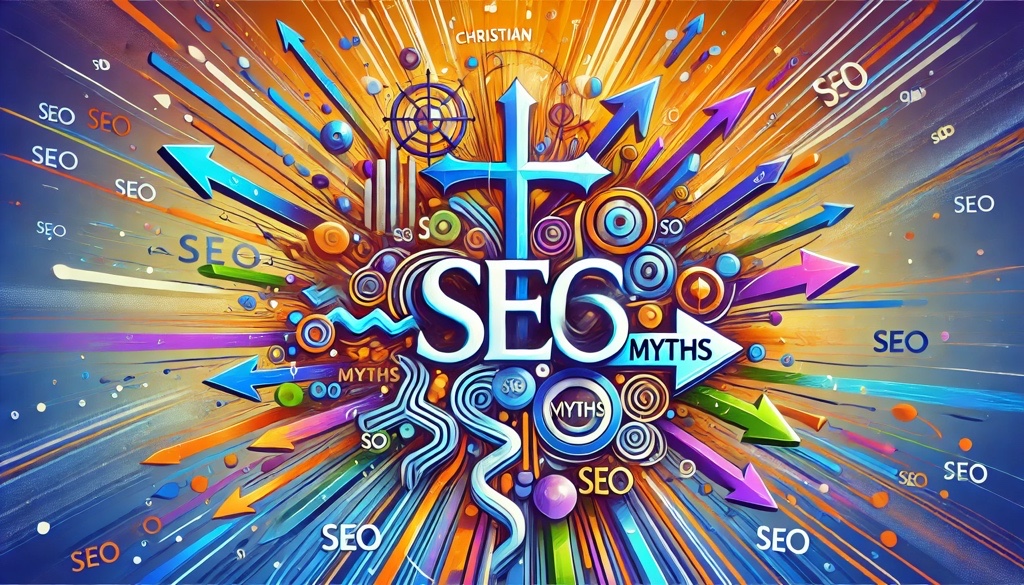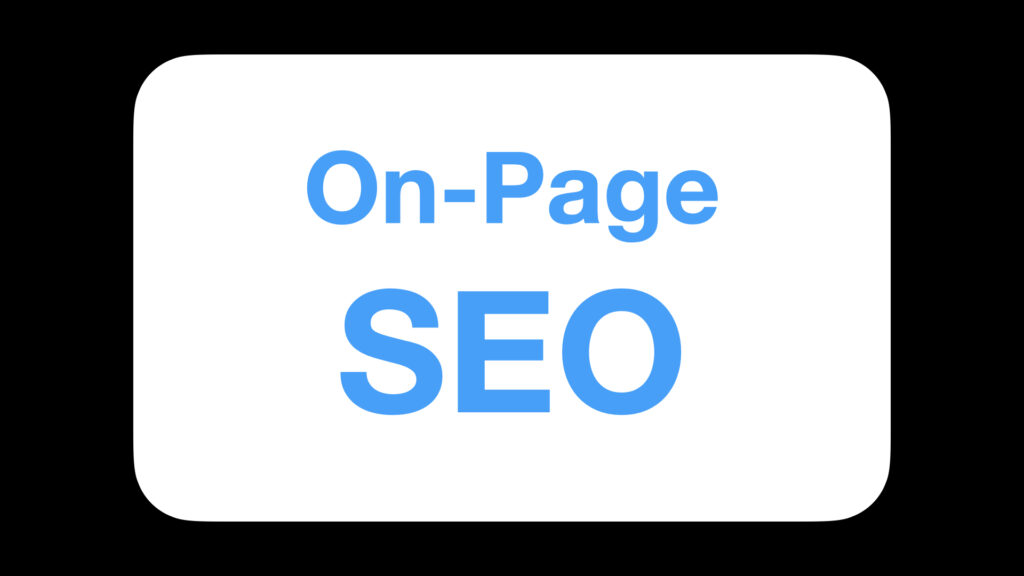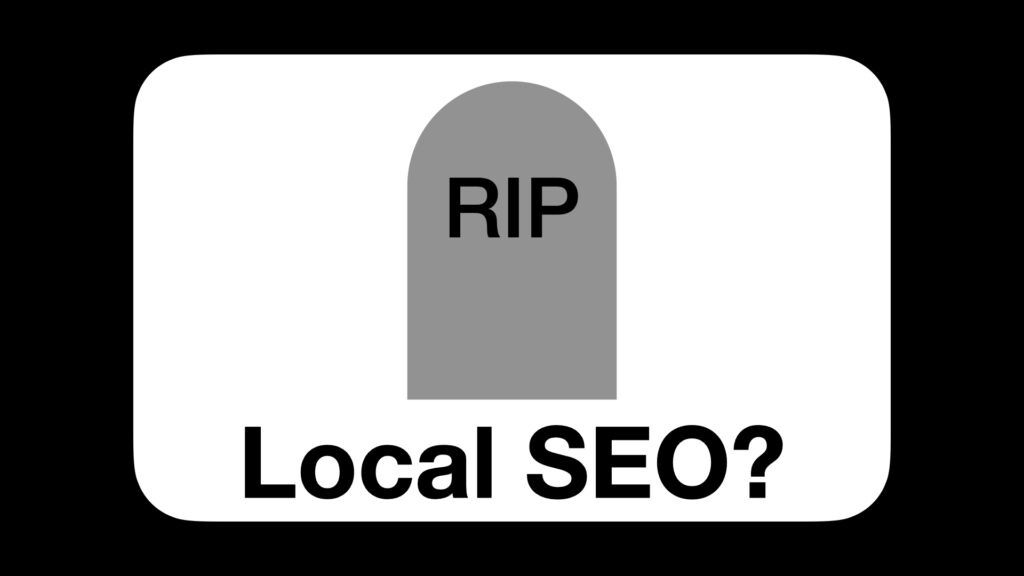
When it comes to SEO, there’s a lot of information out there. And let’s be real, not all of it is true. As a Christian business owner, you’ve got enough on your plate without getting bogged down by SEO myths that might be holding you back. It’s time to set the record straight and debunk some of the most common SEO myths. Let’s get into it!
Myth #1: “I Just Need to Use a Bunch of Keywords”
Alright, this one is straight-up old-school. Back in the early days of SEO, cramming your website with keywords worked wonders for search rankings. But today? Not so much. Search engines are way smarter now. They don’t just look at keywords; they look at context, relevance, and quality.
The Truth: Using keywords is still important, but stuffing them everywhere—like every sentence, heading, and image—is a one-way ticket to being flagged as spammy. Instead, focus on naturally incorporating keywords into valuable content. Make sure each page of your site has a clear topic and includes keywords where they make sense.
Myth #2: “SEO Is a One-Time Fix”
Here’s the deal: SEO isn’t something you can “fix” once and forget about. Some business owners think that after optimizing their website, they’re all set for life. IKR, if only it were that easy! The truth is, SEO is an ongoing process.
The Truth: SEO requires regular maintenance and updates. Google’s algorithms change frequently, and your content needs to evolve along with your audience’s needs. Keep adding fresh, relevant content to your site, optimize new pages, and adjust your strategy based on what’s working.
Myth #3: “Paid Ads Help My Organic SEO”
This one comes up a lot. Some folks think that running Google Ads or boosting posts on Facebook will magically improve their website’s organic SEO. While ads can help drive traffic, they don’t directly impact your search engine rankings.
The Truth: Paid ads and organic SEO are two different animals. Ads can drive visitors to your site quickly, but they don’t influence your website’s organic ranking. For long-term growth, focus on optimizing your website content, building backlinks, and improving user experience.
Myth #4: “Local SEO Is Only for Big Cities”
If you’re running a Christian business in a smaller town or a rural area, you might think local SEO doesn’t apply to you. After all, why bother if there isn’t much competition, right? Wrong! Local SEO is essential, no matter where you’re located.
The Truth: Local SEO helps everyone looking for services in their community find your business—whether you’re in a bustling city or a quiet town. Claiming your Google My Business profile, collecting reviews, and including your location in your content can make a huge difference. When someone searches for “Christian counseling near me,” you want to be the first name they see, no matter the size of your town.
Myth #5: “I Don’t Need a Mobile-Friendly Site”
Here’s a myth that’s way past its expiration date. Some business owners still believe that having a basic website is enough, and mobile optimization is just an extra. But with more than half of all web traffic coming from mobile devices, this is a myth you’ve got to ditch.
The Truth: Google uses mobile-first indexing, which means it primarily looks at the mobile version of your website for ranking and indexing. If your site isn’t mobile-friendly, you’re missing out on both potential visitors and better search rankings. Make sure your site is responsive, loads quickly, and offers a smooth user experience on all devices.
Myth #6: “I Can’t Compete with Big Brands”
Ever feel like your Christian business is too small to rank against the “big guys” in search results? It’s easy to get discouraged, but here’s a reality check: small businesses actually have an advantage in local SEO.
The Truth: Search engines prioritize local relevance over brand size for local searches. By optimizing for local keywords, claiming your Google My Business listing, and gathering positive reviews, you can rank high in local search results—even above big-name competitors.
Myth #7: “SEO Is All About Ranking #1”
A lot of people think that the goal of SEO is to get the top spot on Google, and while that’s certainly nice, it’s not the only metric that matters. Ranking is important, but so is providing value to your visitors.
The Truth: High-quality content, a user-friendly site, and meaningful engagement are just as crucial. Even if you’re not in the #1 spot, a well-crafted meta description can entice people to click on your link. Focus on optimizing your site for visitors, and the rankings will follow.
Ready to Bust More Myths?
Now that we’ve tackled some of the biggest SEO myths, it’s time to put your newfound knowledge into action. SEO is a journey, not a one-time fix. The best part? You don’t have to do it alone. If you’re feeling unsure about your next steps, on Team Jesus is here to help Christian businesses like yours navigate the SEO waters.
Let’s Clear the Fog
SEO can feel confusing with all the conflicting information out there. By debunking these common myths, you’re one step closer to building a solid strategy that works. Don’t let outdated ideas hold you back. Your business has a message to share, and with the right SEO practices, it can reach the people who need it most.
Need a little more guidance? You know we’re here to help you along the way!












